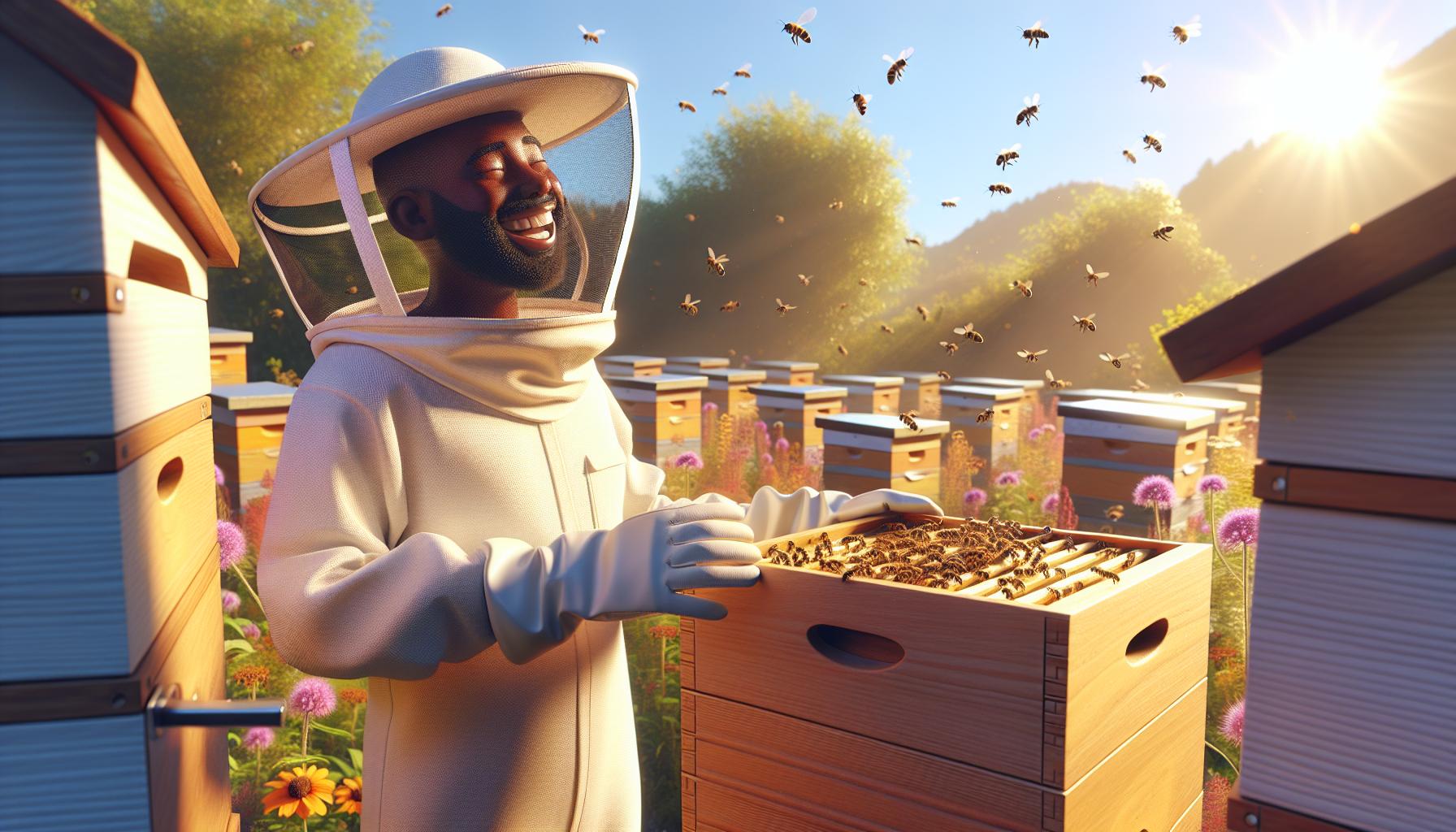Beekeeping has grown in popularity as both a rewarding hobby and a vital agricultural practice. Whether you’re an experienced beekeeper or a beginner, having the right supplies is crucial for maintaining a healthy and productive hive. With increasing concerns about declining bee populations, more people are stepping into beekeeping to support pollinators and enjoy the benefits of fresh honey. However, finding the right honey bee supplies can be overwhelming with so many options available. This guide will help you navigate the best honey bee supplies for sale and make informed choices for your beekeeping journey.
Essential Honey Bee Supplies
Successful beekeeping requires a variety of essential supplies to protect both the bees and the beekeeper. These supplies fall into three main categories: protective gear, hive equipment, and tools.
Protective Gear
Working with bees requires protective clothing to minimize the risk of stings. Some of the key protective gear includes:
-
Bee Suits: Full-body suits made from thick material to prevent bee stings.
-
Gloves: Long, durable gloves protect hands and wrists while working with bees.
-
Veils: Head coverings that keep bees away from the face and neck for safety.
Hive Equipment
Hive equipment is essential for providing bees with a stable and productive environment. Important components include:
-
Beehives: Available in wooden or plastic models, these structures house bee colonies.
-
Frames: Removable inserts that hold honeycomb, making hive management easier.
-
Supers: Additional boxes added to the hive for honey storage and extra space for bees.
Beekeeping Tools
Specialized tools help beekeepers manage their hives efficiently. Must-have tools include:
-
Smokers: Devices that emit smoke to calm bees during hive inspections.
-
Hive Tools: Used to pry apart hive components and scrape hive surfaces clean.
-
Bee Brushes: Soft brushes for gently moving bees without harming them.
By investing in these essential supplies, beekeepers can maintain healthy hives and ensure smooth operations.
Where to Buy Honey Bee Supplies
Finding reliable sources for honey bee supplies is crucial for beekeepers at all levels. There are two primary avenues for purchasing supplies: local beekeeping stores and online retailers.
Local Beekeeping Stores
Local beekeeping stores offer the advantage of hands-on assistance from experienced professionals. Benefits include:
-
Access to expert advice tailored to your specific beekeeping needs.
-
The ability to inspect products before purchasing.
-
Opportunities to participate in workshops and classes for new beekeepers.
By shopping locally, beekeepers can build relationships within the community while supporting small businesses.
Online Retailers
For convenience and variety, online retailers are an excellent option. Advantages include:
-
A vast selection of beekeeping supplies, including specialty items.
-
Competitive pricing with the ability to compare products and reviews.
-
Fast shipping and doorstep delivery, making it easier to restock supplies.
Many beekeepers prefer a combination of both local and online shopping to maximize selection and support.
Factors to Consider When Buying Honey Bee Supplies
Not all beekeeping supplies are created equal, so it’s important to consider key factors before making a purchase.
Quality and Durability
Investing in high-quality supplies ensures longevity and better performance. Look for products made from sturdy materials that can withstand outdoor elements. Read reviews and choose reputable brands that guarantee durability.
Price and Budget
Beekeeping can be an investment, so setting a budget is important. Compare prices across different retailers and consider buying in bulk to save money. While affordability matters, it’s crucial to balance cost with quality to ensure the health and productivity of your hives.
Honey Processing Equipment
For those looking to harvest honey, additional equipment is needed to extract, filter, and store honey efficiently.
-
Honey Extractors: Devices that use centrifugal force to remove honey from the combs.
-
Filters and Strainers: Tools that help remove impurities from honey before bottling.
-
Bottling Equipment: Jars and dispensers for proper storage and sale of honey.
Processing honey properly ensures a clean, high-quality product that can be enjoyed or sold.
Conclusion
Beekeeping is a rewarding practice that requires careful planning and the right supplies. By choosing high-quality protective gear, hive equipment and tools, beekeepers can ensure the health of their colonies and enjoy a successful beekeeping experience. Whether purchasing from a local store or an online retailer, prioritizing quality and durability will lead to long-term success.
With the growing interest in beekeeping, more resources and supplies are available than ever before. By making informed choices and investing in essential tools, beekeepers can contribute to environmental sustainability while enjoying the sweet rewards of honey production.
Frequently Asked Questions
1. What is beekeeping and why is it important?
Beekeeping, also known as apiculture, involves maintaining bee colonies for honey production, crop pollination, and ecological benefits. Bees play a crucial role in pollinating plants, making beekeeping essential for biodiversity and food security.
2. What supplies do I need to start beekeeping?
Beginner beekeepers need protective gear (bee suits, gloves, veils), hive equipment (hives, frames, supers), and essential tools (smokers, hive tools, bee brushes). Additional items like honey extractors and storage jars are useful for honey harvesting.
3. Where is the best place to buy honey bee supplies?
Honey bee supplies can be purchased from local beekeeping stores, which offer expert guidance, or online retailers that provide convenience and a broader selection. Many beekeepers use both sources to access the best products for their needs.
4. How do I choose high-quality honey bee supplies?
When selecting beekeeping supplies, prioritize products made from durable materials designed to withstand outdoor conditions. Check customer reviews, compare brands, and invest in trusted suppliers to ensure longevity and effectiveness.
5. Are there training programs available for new beekeepers?
Yes, many local beekeeping stores and organizations offer beginner classes that teach essential skills, hive management techniques, and best practices for maintaining a healthy bee colony. Online courses and community groups are also great resources for learning more about beekeeping.



